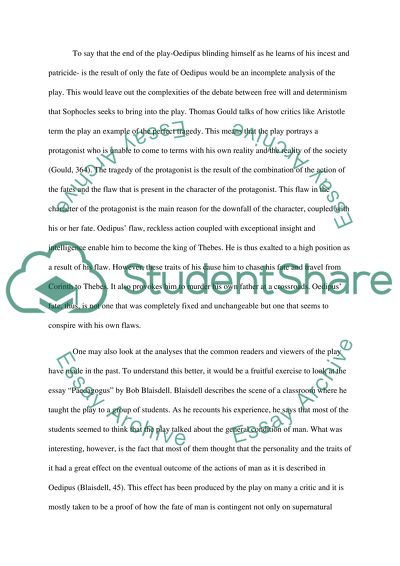Cite this document
(“Oedipus the King Research Paper Example | Topics and Well Written Essays - 1750 words”, n.d.)
Retrieved from https://studentshare.org/literature/1446779-explain-how-oedipus-s-own-fate-and-personality
Retrieved from https://studentshare.org/literature/1446779-explain-how-oedipus-s-own-fate-and-personality
(Oedipus the King Research Paper Example | Topics and Well Written Essays - 1750 Words)
https://studentshare.org/literature/1446779-explain-how-oedipus-s-own-fate-and-personality.
https://studentshare.org/literature/1446779-explain-how-oedipus-s-own-fate-and-personality.
“Oedipus the King Research Paper Example | Topics and Well Written Essays - 1750 Words”, n.d. https://studentshare.org/literature/1446779-explain-how-oedipus-s-own-fate-and-personality.


